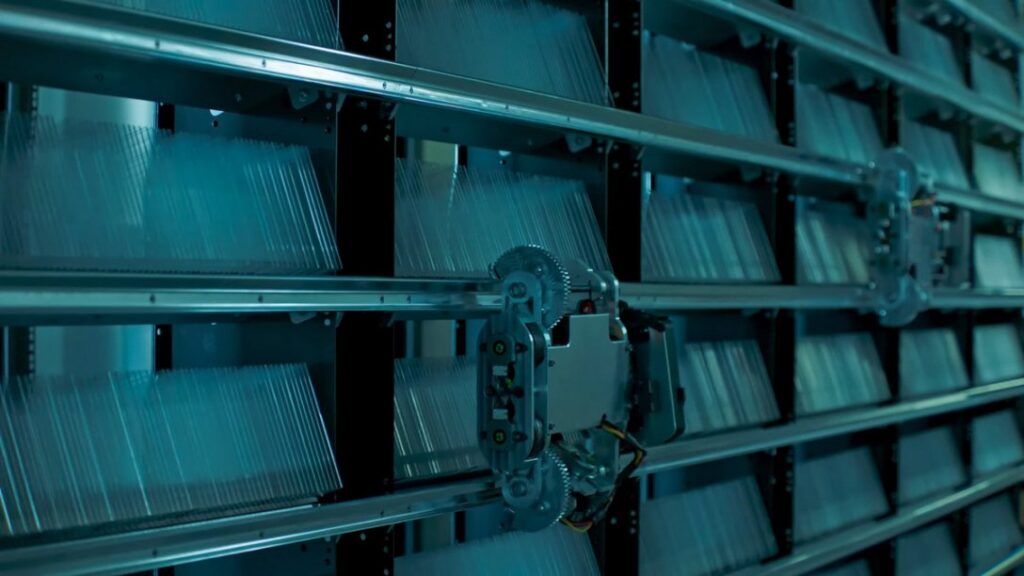
A revolution from Microsoft: a small plate of glass can hold several TB of data, which is equivalent to 3500 movies
Researchers at Microsoft Research’s Cambridge lab have developed a revolutionary way to use glass to store massive amounts of data, helping to save resources and space in a world where the influx of digital information requires ever larger data stores.
As scientists write on the official website of Project Silica, if we continue on the path we are on now, we will have to fill the entire planet with hard drives just to store our data.
Luckily, a small sheet of glass can now hold several terabytes of data, enough to store approximately 1.75 million songs or 13 years of music. Data is extracted using a high-speed computer-controlled microscope from a library of glass disks that store data in three-dimensional pixels called voxels.

For a sense of scale, each plate can store about 3500 movies. Or enough movies without interruption to play them for more than six months without repeating them. A glass plate could hold the entire text of War and Peace, one of the longest novels ever written, about 875,000 times. And most importantly, it can store data in a small data center space.
Magnetic storage on conventional hard disks has a number of problems: its limited lifespan requires frequent backups, which subsequently increases energy consumption and operating costs. A user’s hard disk can last about five years. Tape storage (an expensive method used in critical database storage infrastructure) is more resistant to wear and tear, but is still limited to about ten years, the researchers say.

That’s why Microsoft Research proposes to use glass plates about the size of a drink coaster to store data for thousands of years. This technology makes it possible to record data knowing that it will remain unchanged and secure, which is a significant step forward in sustainable data storage. Once written, the data inside the glass cannot be changed.
The Silica project is focused on pioneering quartz glass data storage in collaboration with the Microsoft Azure team and is looking for more sustainable ways to archive data. Project Silica uses Azure AI to decode the data stored in the glass, which speeds up reads and writes and allows you to store more data.

